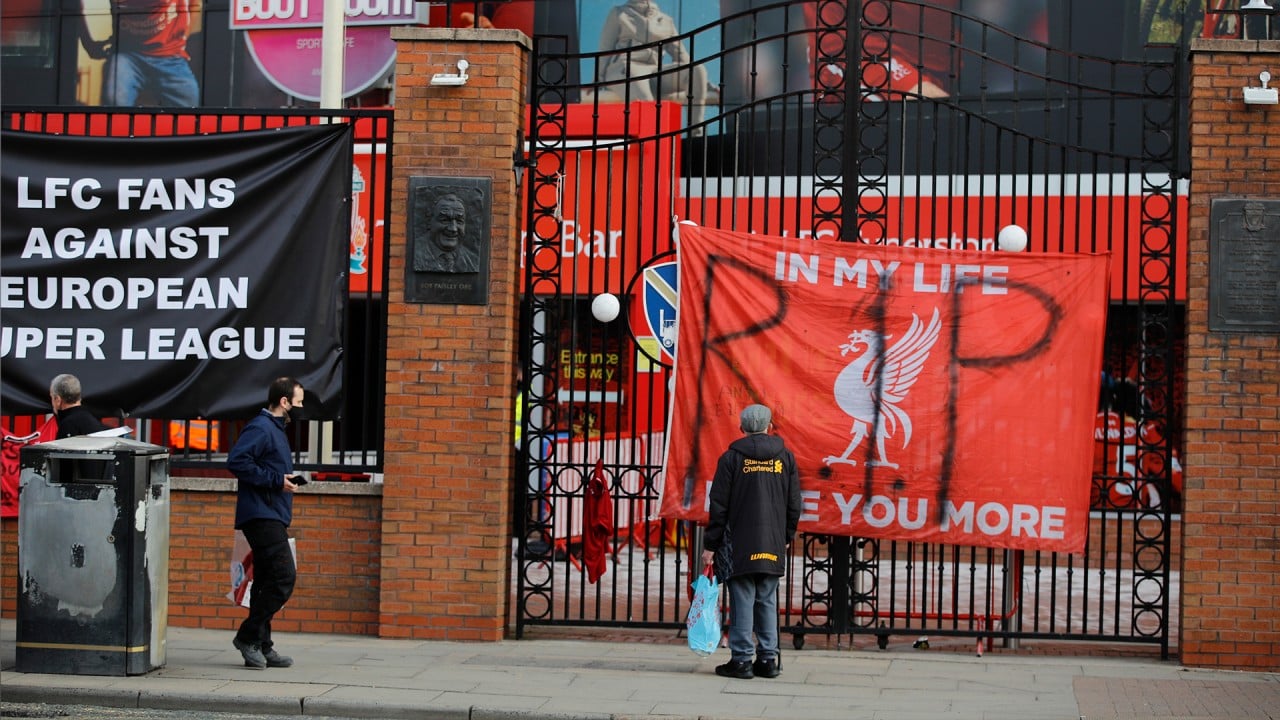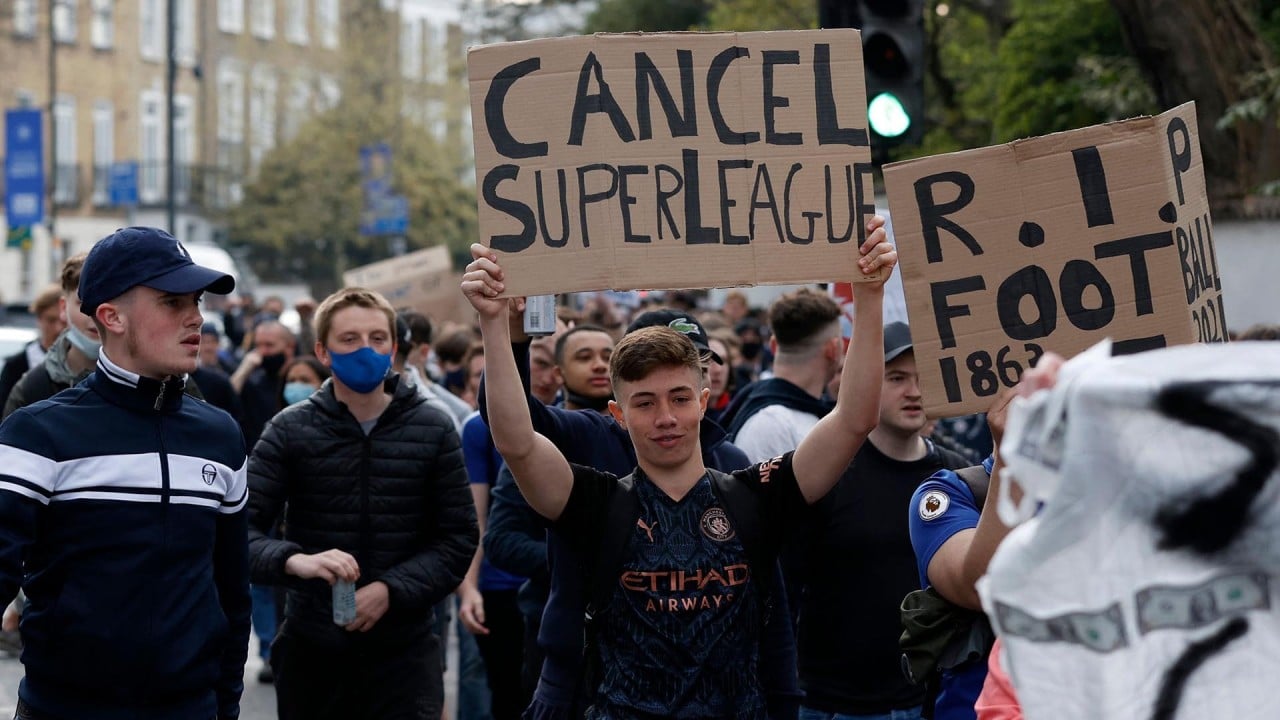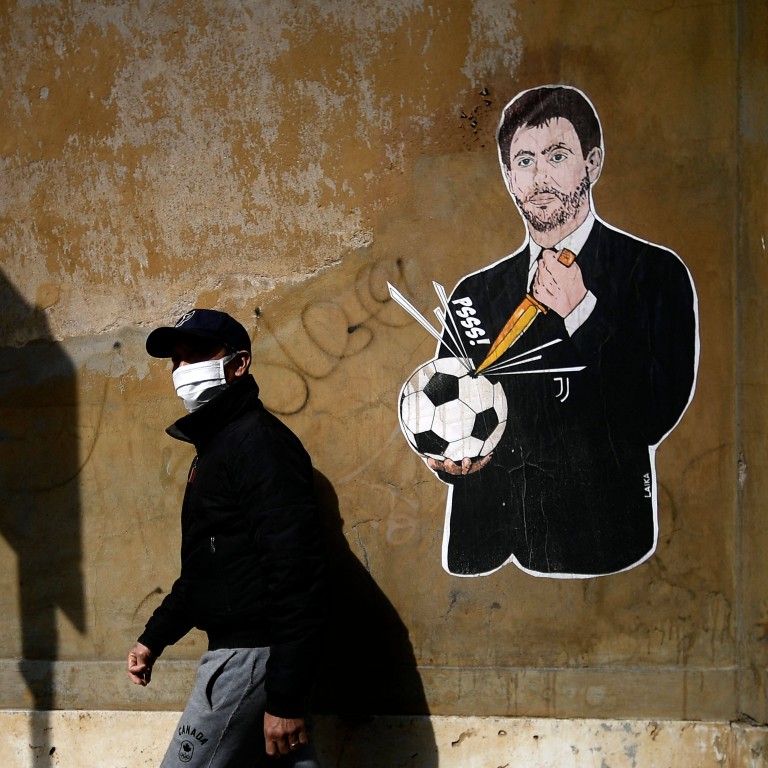
European Super League setback won’t stop the hunt for more football revenue
- Pandemic-induced financial pain will have played a part in the plan by some of Europe’s top clubs to form a breakaway league
- Fan outrage has derailed the plan this time, but the problem of high player wages and the lure of lucrative deals over broadcasting rights remain
After a seemingly interminable year during which so much media attention has been focused on US politics, Brexit and the Covid-19 pandemic, it has been a relief over the past two weeks to be swept onto new issues – even if it is in an area about which I have for decades had very little interest, and confess embarrassing ignorance.
Even before I left the UK in the 1980s to make Hong Kong my home, I was a national “aberration” for my yawning unconcern over “the beautiful game”. Perhaps that was in part because I attended a school where we played rugby.
But I think most of all it was because I grew up in Grantham, one of England’s least charismatic towns, where the local football team, Grantham Town FC, was muddy, messy, clumsy and a persistent disappointment to the few hundred fans who shivered on the concrete London Road stand to see them lose most Saturday afternoons.
I recall a sort of “golden era” after 1965 when former Norwich City star Terry Bly was manager, and in 1973 reaching the third round of the FA Cup, but mainly the story of the Grantham “Gingerbreads” was of mud, grime, indifferent defeats and a steady churn of chairmen and managers.
The idea of “the beautiful game” did not readily spring to mind – nor the multibillion business that European soccer has become, and over which an exclusive group of global billionaires have in the past week been waging war.
It has been fascinating to watch as passions have flared, politicians have fulminated, and millions of fans have risen in protest. A banner hung outside Manchester United’s Old Trafford stadium complained: “Created by the poor. Stolen by the rich”.
The fans have been the most outraged. It is quite true that few of Europe’s leading clubs would be where they are without millions of fans across the world – it is frequently reported that millions, perhaps tens of millions, tune in to Premier League games every weekend.
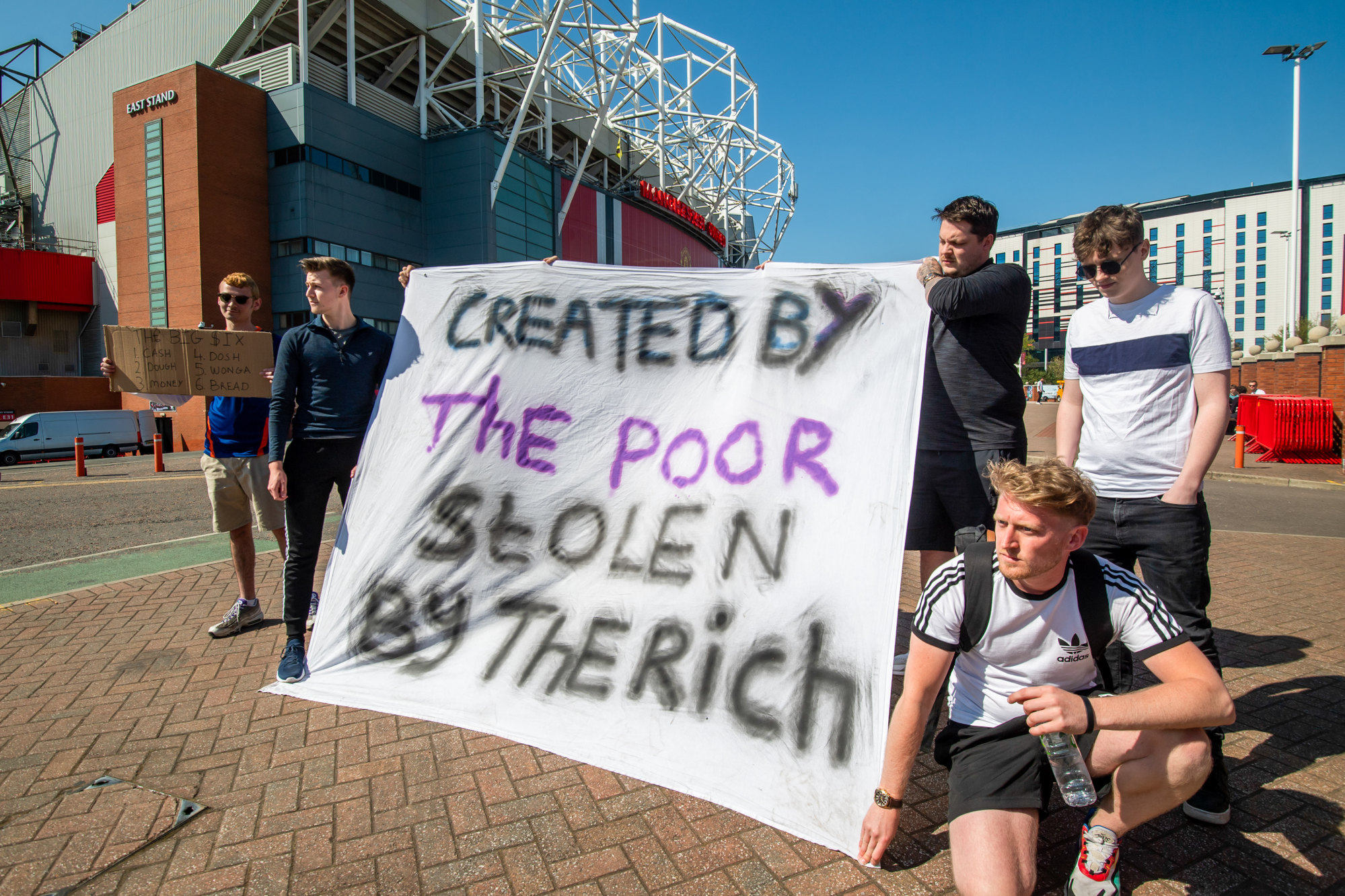
But Europe’s football is today a global multibillion-dollar business, with many top clubs generating most of their revenues not from fans, but from broadcasting rights and advertising. And the past week’s attempt to create a new European Super League is about who captures these spoils.
At present, the pinnacle of the European game – and the main commercial beneficiary – is the Union of European Football Associations (Uefa) and its Champion’s League.
This draws on the top teams from each of Europe’s national leagues – predominantly the Premier League in the UK, the Bundesliga in Germany, La Liga in Spain, Serie A in Italy and Ligue 1 in France.
Big clubs prove that match-going supporters no longer matter – they are after ‘armchair fans’
But the pandemic clobbered the season, with revenues overall down about 12 per cent from the 2018/19 season, and for specific clubs down even more sharply (Barcelona, Paris St Germain and Tottenham Hotspur down 15 per cent, for example, with Manchester United down 19 per cent, and Inter Milan down 20 per cent).
The Financial Times estimated that the collective shortfall for the 11 clubs in the Super League, except Liverpool, amounted to €800 million.
It is here we find the seeds of the breakaway plan for the Super League to “save football” in the wake of the pandemic – a permanent elite of 15 teams, with an additional five qualifying by competition year by year.
The aim was to negotiate broadcasting deals with the likes of Facebook, Amazon, Disney and Sky (owned by Comcast) worth €4 billion a year – about twice the clubs’ earnings from the Uefa Champions League.
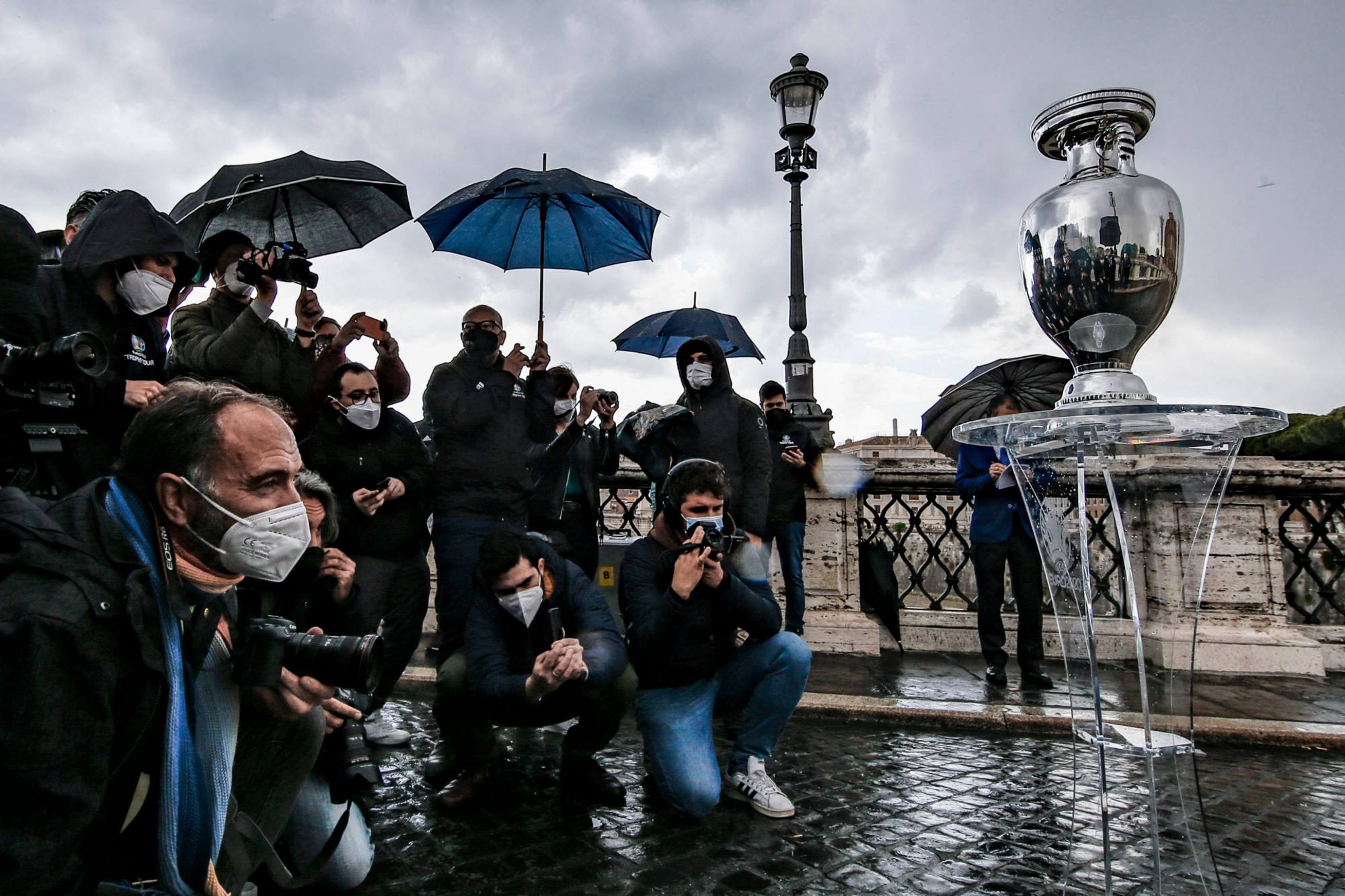
According to the FT, JPMorgan Chase agreed to enter the fray with a €3.25 billion “infrastructure grant” to be amortised over 23 years against broadcast rights.
The plan had a strong American “smell” to it, with financing terms similar to those underpinning the National Basketball Association (NBA) and the National Football League (NFL) in the US.
This was perhaps unsurprising given that American tycoons own four of Europe’s top football clubs (Manchester United, Liverpool, Arsenal and AC Milan) – all of them initial signatories to the plan.
Uefa head, Aleksander Ceferin, was apoplectic when plans for the Super League were unveiled last Sunday. He called it “a closed shop run by a greedy select few”: “I can’t understand that you see fans protesting and you don’t care. And you’re not poor. You have money, but you want more and more and more. I am sick of hearing about clubs as ‘assets’. This is about history.”
There are good grounds for protest, despite Uefa’s blatant self-interest. A FT editorial asked: “Is [football] a business like any other, or something more?” It saw a shift “from a community-based sport to an arm of the global entertainment industry”.
British Prime Minister Boris Johnson threatened that “the government will not stand by while a small number of owners create a closed shop”. Political leaders in France, Spain, Italy and Greece joined the fray. Top clubs in France and Germany opposed the Super League plan.
By Wednesday, advocates for the plan had capitulated, though for how long is yet to be seen, because European football faces solvency problems that will still need fixing.
Perhaps the gravest challenge is that their wage bills are out of control. With top players like Lionel Messi at Barcelona earning an estimated US$150 million last year from wages and endorsements, and Cristiano Ronaldo at Juventus earning US$65 million, many leading European clubs spend a majority of their revenues on wages alone.
AC Milan last year spent more than 90 per cent of its revenue on wages, according to data from Off the Pitch, compiled by the FT.
So whether the Super League is stillborn, the problems facing “the beautiful game” remain deep, and in need of urgent attention.
David Dodwell researches and writes about global, regional and Hong Kong challenges from a Hong Kong point of view


